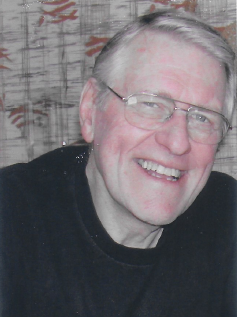Paul Wallem, retired dealer-principal of Wallem International and Central Sands International, was an inaugural inductee into Farm Equipment’s Dealer Hall of Fame. A former International Harvester (IH) exec turned dealer-principal, Wallem proved to be a major champion for the dealer business and helped advance metrics, computerization and best practices at a time where it was uncommon in the industry. Like many previously successful dealers, Wallem’s business didn’t survive the disastrous 1980s.
Editor’s Note: Farm Equipment magazine asked its Alumni Group (comprised of recipients of the Dealership of the Year Award and Hall of Fame) a thought-provoking question that we call the “It’s a Wonderful Life Question.” In the famed Christmas movie, protagonist George Bailey gets to see – via a dramatic intervention by an angel named Clarence Odbody – what the world might have been like had he never been born. Similarly, we asked our award-winning executives to ponder that same challenging question, and to consider how their communities might have been altered had their businesses “failed to launch” or perhaps failed to survive trying times. Here’s what we learned. – Mike Lessiter, editor/publisher.
To the question about the impact of a dealership that fails to survive, I have first-hand experience. One of my two dealers survived for a time, but my partner who managed that location is no longer alive to comment.
So I will focus on the one that did not survive.
Following the Case-IH merger and the ag meltdown, I sold our home dealership (Wallem International in Belvedere, Ill.) to a family with strong ties to agriculture and a good net worth. Unfortunately, the difficult ongoing ag economy was not what they had prepared for and they closed it within a year.

Customers who had been closely involved with our dealership for parts and service suddenly had to travel long distances for those services. Our dealership was one of the largest in Northern Illinois, and when customers could not get equal service, some traded for Deere equipment from the dealership that was next door. The sad part of that is that the Deere dealer also closed less than 2 years later.
Our local community of 15,000 suffered a lot from these closures. We had supported local charities, 4H auctions and funding drives. We had combined the FFA crop of corn each year. These and other commitments we had made to the local community came to an end.

“When customers could not get equal service, some traded for Deere equipment from the dealership next door. The sad part of that is that the Deere dealer also closed less than 2 years later.” —Paul Wallem
At one time while our doors were open, there were 4 farm equipment dealerships in our town. Suddenly they were all gone. A small community never recovers from losses like this.
Our employees who were hurt the most following the closure were those that were not able to replace the health insurance they had always had with us. Quite a few, when they got new jobs, did not receive that benefit. Some were not able to get new jobs with as good a paycheck. Some that could not find work retired early, which they had not planned to.
.jpg)
Frank (l) and Mike Lessiter (r) took Paul Wallem to the Case IH headquarters in Racine, Wis., in November 2019 to meet with executive Scott Harris. This was Wallem's first time in the building in 33 years.
Read more from the What If & What Was: Reflections on Our Journey series
Join the Conversation! Email your business' "George Bailey" observations to mlessiter@lessitermedia.com
- Tom Rostoczy of Stotz Equipment
- Earl Livingston of Livingston Machinery
- Leo Johnson of Johnson Tractor
- Joe Keller of Keller Manufacturing & the Bobcat Skid-Steer Loader
- Paul Wallem of Wallem International
- Tim Norris of Ag Info Tech
- David Meyer of Titan Machinery
- Tim Young of Young's Equipment Inc.
- Mike Lessiter of Lessiter Media
- Steve Martin of Martin Industries
Related Content
- Inaugural Farm Equipment Hall of Fame Class of 2024: Paul Wallem, Wallem International & Central Sands International
- [Podcast] Our Dealer Story: Retired Dealer-Principal Paul Wallem
- 33 Years Later: Lessons Learned Make Today’s Dealers Stronger
- Why Did International Harvester Break Up?
- [Podcast] The Break-Up of International Harvester Podcast: Farm Equipment Interview with Paul Wallem
- [Video] The Breakup of International Harvester and “What Really Happened”
- Looking Back: Left Major OEM Career 55 Years Ago to Become Dealer-Principal
- [Video] One-on-One with Farm Equipment’s Dealer Hall of Famers Part 1
- [Video] One-on-One with Farm Equipment’s Dealer Hall of Famers Part 2
- [Video] One-on-One with Farm Equipment’s Dealer Hall of Famers Part 3
- All in a Day’s Work: Tractor Fires, Old-Timer Lunch & In-Cab Troubleshooting






